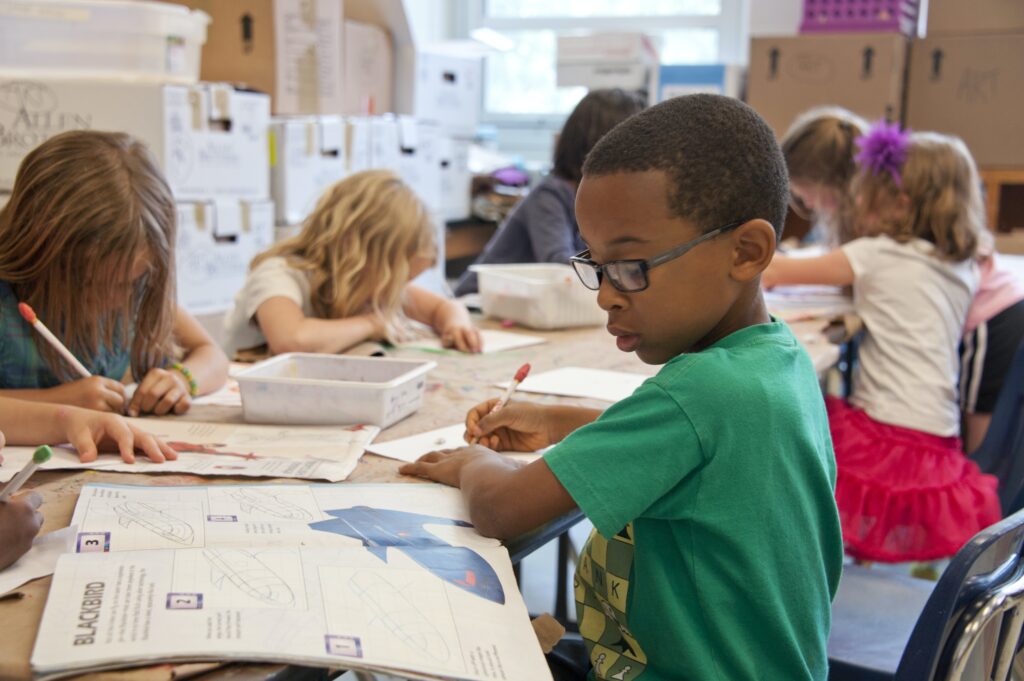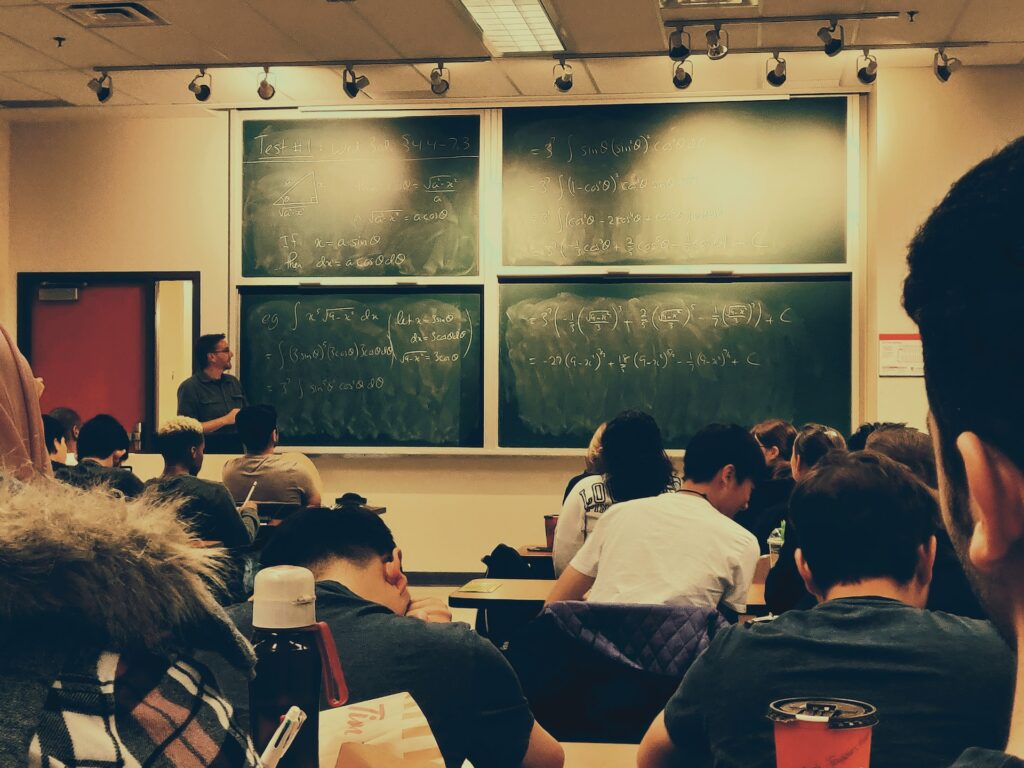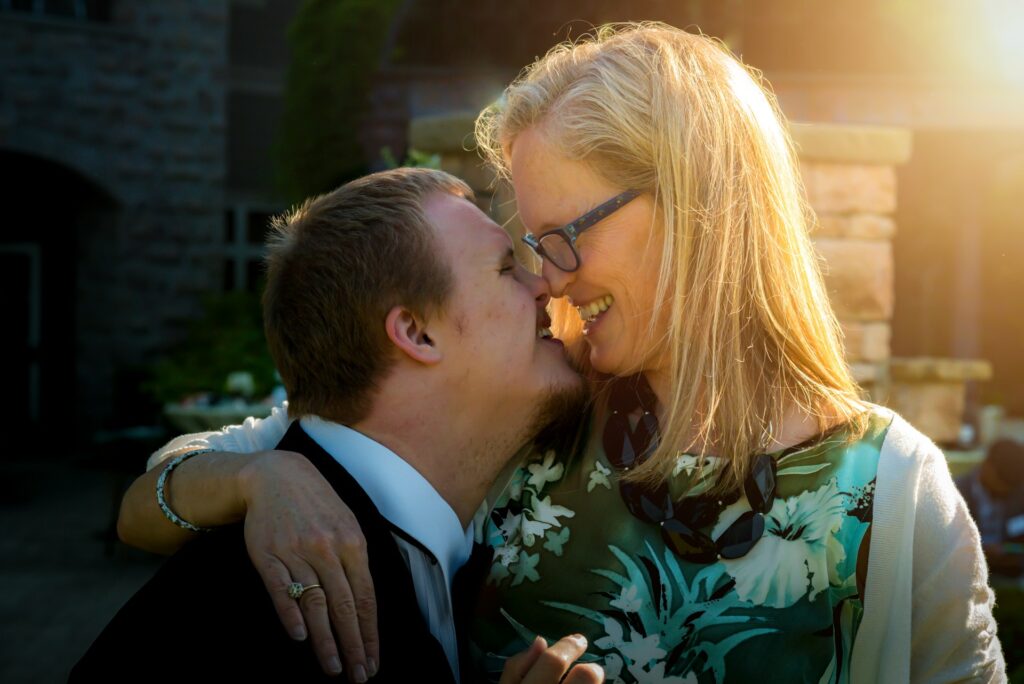This guide provides a complete overview of the Portugal education system, helping families and expats understand how schooling works at each level. Portugal offers both public and private school options, along with international programs to suit the needs of expat children.
The Portuguese education system covers pre-school, primary, secondary, and higher education, each designed to equip students with the skills they need for the future. Public education is free for residents and provides a solid foundation, while private schools and international curriculums offer additional choices for those seeking specialized education.
Understanding the Portugal education system allows families to make informed choices that align with their goals, ensuring children have a successful start in their educational journey.
Education in Portugal
The Portugal education system provides a structured and inclusive environment for learning. It covers early childhood education through to higher education, ensuring that children gain essential skills at every stage.
The Portuguese education system is built on a national curriculum that promotes academic growth, social development, and prepares students for further studies or vocational paths.
Portugal’s public schools are free and accessible to all residents, making education widely available. For families looking for different options, private schools and international schools offer alternative curriculums.
International schools often follow programs like the International Baccalaureate or British and American curriculums, appealing to expat families and those wanting an international approach.
The Portugal education system also supports students in language learning. Portugal consistently ranks high in English proficiency, achieving 8th place in Education First’s 2023 rankings. Many schools provide language support for international students, helping them adjust and succeed in their new environment.
Portugal schooling promotes lifelong learning, with adult and vocational education programs that allow people of all ages to develop new skills. Through this strong educational framework, the Portuguese education system serves both local and international students, fostering a learning culture that values growth and opportunity.

Structure of the Portugal Education System
The Portugal education system offers a well-organized structure designed to support children from early years through to higher education. The Portuguese education system has different levels, each focused on building students’ knowledge, skills, and personal growth. Education is compulsory from age six to 18, ensuring all students receive a foundational education that prepares them for adulthood.
Pre-School Education
Pre-school education in Portugal is available for children aged three to five. Though it’s not compulsory, many parents choose pre-school for their children to help them develop basic skills early on. Pre-schools focus on social and emotional development and introduce children to basic concepts like shapes, colors, and letters.
Pre-school education helps children adapt to a learning environment and prepares them for the formal structure of primary education. The Portuguese government offers some public pre-school options, while many private institutions provide additional choices for families.
Primary Education
Primary education in Portugal begins at age six and is compulsory. This level covers grades one to four and provides children with a strong foundation in core subjects like math, Portuguese language, and science.
Teachers also introduce subjects such as arts, physical education, and history, promoting well-rounded development. The structure of primary education encourages students to work independently and develop skills in reading, writing, and problem-solving.
Primary schools in the Portugal education system emphasize creating a positive learning environment where students feel comfortable and engaged.
Secondary Education
Secondary education in the Portuguese education system follows primary school and is divided into two cycles. The first cycle, covering grades five to nine, focuses on broadening students’ knowledge in subjects introduced in primary education. At this stage, students continue learning Portuguese, math, history, and science, while also being introduced to foreign languages and advanced subjects.
The second cycle, covering grades 10 to 12, prepares students for higher education or vocational paths. In this cycle, students can choose a specific area of study, such as sciences, arts, or technology, aligning with their interests and future goals. Secondary education encourages independent learning, critical thinking, and specialized knowledge, helping students transition smoothly into higher education or the workforce.
Higher Education
Higher education in Portugal provides options for students who complete secondary school and wish to continue their studies. Universities and polytechnic institutions make up the main options in the Portuguese education system for higher learning. Eight universities from Portugal are listed among the top universities worldwide in the 2025 QS World University Rankings.
Universities in Portugal focus on academic and theoretical studies, offering bachelor’s, master’s, and doctoral programs across various fields. Polytechnic institutions provide a more practical approach to learning, focusing on skill development in specific careers like business, engineering, and health sciences.
The Portugal education system also offers many international programs at higher education levels, making it accessible to students from other countries. Admission to universities generally requires passing exams, while polytechnics may offer alternative paths based on vocational training or other qualifications.

Public Schools in Portugal
Public schools in Portugal provide free education for residents, serving students from primary through secondary levels. These schools are part of the Portugal education system and follow a national curriculum that includes Portuguese, mathematics, history, and sciences.
Public schools ensure equal access to education, allowing children from various backgrounds to study in a shared environment. Public schooling in Portugal supports both local students and, in many cases, children of expats who seek an affordable education.
Pros and Cons of Public Education
Public education in the Portugal education system offers several advantages. It is free, which reduces financial pressure on families. Public schools also follow a standardized curriculum, ensuring that students receive a balanced education.
Additionally, public schools foster a sense of community, as children from different backgrounds learn together. This environment supports social development and integration within the Portuguese community.
However, public education in Portugal has some challenges. Larger class sizes in public schools may mean less individualized attention for each student. Public schools may also have limited resources compared to private institutions.
Another factor is that the curriculum is taught in Portuguese, which may be difficult for non-Portuguese-speaking expat children to adjust to at first.
Private Schools in Portugal
Private schools in Portugal offer alternative options for families looking for a different approach to education. Private schools include international institutions that offer curriculums like the International Baccalaureate, British, and American programs.
These schools appeal to both local families and expats seeking a curriculum that aligns with their home country’s education system. Private schools in the Portuguese education system often provide smaller class sizes, additional facilities, and more extracurricular activities.
Pros and Cons of Private Education
Private education within the Portugal education system has several benefits. Smaller class sizes allow teachers to give more individualized attention, which can enhance learning.
Private schools often provide advanced facilities, language support, and access to international curriculums. These schools cater to students who want education in English or another language, making them a preferred choice for many expat families.
However, private schooling in Portugal comes with high tuition fees, which may not be affordable for all families. Private schools may also have more selective admission criteria, making entry more competitive. Additionally, while private schools provide a unique environment, some families feel that they lack the community integration found in public schools.

Most Popular Education Curriculums in Portugal
Portugal’s education system includes several international curriculums to meet the needs of diverse students, particularly those from expat families. Portugal’s education system ranks 27th globally for its well-developed public education system, according to U.S. News & World Report. This ranking reflects the country’s commitment to providing quality education to its citizens.
The Portuguese education system recognizes the value of offering a variety of curriculums that align with students’ goals and backgrounds. International schools in Portugal provide popular curriculums like the International Baccalaureate, British, and American programs, giving students options to match their future academic and career plans.
International Baccalaureate (IB) Program
The International Baccalaureate (IB) program is a widely respected option within the Portugal education system, available at several international schools. The IB program focuses on critical thinking, global awareness, and academic rigor. Schools offering the IB curriculum aim to prepare students for university by developing a strong foundation in subjects like science, humanities, and languages. Many families in Portugal schooling choose the IB for its focus on inquiry and learning independence, which benefits students aiming to study internationally.
British Curriculum
The British curriculum is another popular choice within Portugal schooling, offering a structured program based on the UK education model. Students studying under the British curriculum take GCSEs at the end of secondary education and A-levels for university preparation. British curriculum schools in Portugal follow the same standards as schools in the United Kingdom, which benefits students planning to continue their education in the UK or other British-influenced systems.
American Curriculum
The American curriculum is available in Portugal for students seeking a U.S.-based educational approach. Schools offering this curriculum follow American standards, emphasizing a broad academic foundation with courses in math, English, history, and science. Students also have the option to take Advanced Placement (AP) courses for college credit. The American curriculum in the Portuguese education system is ideal for families who plan to relocate to the United States or want their children to have a flexible, well-rounded education.
Best International Schools in Portugal
Portugal offers a range of excellent international schools that cater to expat families. These schools provide various curriculums that align with the Portugal education system and meet international standards.
Carlucci American International School of Lisbon
This school follows the American curriculum and offers the International Baccalaureate (IB) diploma. Located near Lisbon, it serves students from pre-kindergarten to grade 12, making it a top choice for families looking for American-style education within the Portuguese education system.
St. Julian’s School
St. Julian’s School near Lisbon offers the British curriculum alongside the IB diploma for secondary students. Known for high academic standards, this school draws students from many international backgrounds and aligns well with both the Portugal education system and British standards.
International School of the Algarve
This school, located in the Algarve region, provides both British and Portuguese curriculums, making it a flexible choice for families. Students can pursue either curriculum, benefiting from a multicultural environment that supports local and international standards.
Oporto British School
Located in Porto, this is the oldest British school in Portugal. It follows the British curriculum and offers the IB diploma program, making it ideal for families who want a British education within Portugal schooling.

Tuition Fees in Portugal
The Portugal education system provides affordable public schooling, as public schools are free for residents. Families only need to pay minimal costs for supplies and materials. This accessibility makes public education a preferred option for many, supporting families by reducing expenses while ensuring quality education.
Private schools in Portugal, however, charge tuition fees that vary based on the school’s location, reputation, and curriculum. Private school tuition ranges from €3,000 to €15,000 per year, depending on the institution and level of education. International schools, which follow curriculums like the British or American systems, often charge higher fees, averaging between €10,000 and €20,000 annually.
In the Portuguese education system, higher education tuition is also more affordable compared to many other countries. Public universities charge around €700 to €1,500 per year for bachelor’s programs, while private universities can charge higher fees based on their facilities and specialized courses.
Higher Education in Portugal
The Portugal education system provides a variety of higher education options. Students can attend universities or polytechnic institutions, each offering unique educational paths.
Universities in Portugal focus on academic and theoretical studies, awarding bachelor’s, master’s, and doctoral degrees. Students in universities study a range of fields, from humanities and sciences to engineering and law.
Polytechnic institutions, on the other hand, emphasize practical skills and prepare students for specific careers in fields like business, healthcare, and technology. Higher education institutions in the Portuguese education system maintain high standards and attract both local and international students.
Adult Education in Portugal
Adult education in Portugal supports lifelong learning, providing opportunities for individuals to continue their education or develop new skills. The Portuguese education system offers courses for adults at various levels, from basic literacy to advanced vocational training.
These programs target adults who want to improve their skills, complete unfinished education, or learn a new trade. Many adult education courses focus on practical skills, helping participants enhance their employment opportunities.
Some institutions offer evening classes to accommodate working adults, making education accessible to those who want to continue learning while balancing work and family life.

Vocational Education in Portugal
Vocational education in Portugal prepares students for technical careers and provides practical training in specific trades. The Portugal education system offers vocational programs at both the secondary and post-secondary levels.
Vocational education focuses on hands-on learning in fields like hospitality, construction, and information technology. These programs give students the skills they need to enter the workforce directly, making vocational education an effective choice for those seeking immediate employment.
Students in vocational programs often complete internships, gaining experience that helps them transition smoothly into their careers.
Educational Support for Expat Children
According to CEO World Magazine’s 2024 survey, Portugal ranks 34th in education performance, standing ahead of countries like Italy, Spain, and Malta. The Portugal education system provides strong support for expat children adjusting to a new schooling environment.
Many schools in Portugal recognize the challenges expat students face when moving to a new country. These schools offer language support, extra guidance, and programs that help expat students integrate smoothly. In primary and secondary schools, teachers often give additional assistance to non-Portuguese-speaking students, helping them understand lessons and complete assignments.
Some international schools in Portugal also follow popular curriculums like the British, American, or International Baccalaureate, which can make the transition easier for students accustomed to similar systems in other countries. International schools in Portugal cater specifically to expat families. These schools teach in English or other languages, allowing students to continue their education without the language barrier.
Many schools also provide cultural orientation sessions to help students understand Portuguese customs and adapt to local life. Parents can connect with other expat families through school communities, giving them a network of support that eases the transition for the whole family.
The Portuguese education system works to accommodate expat students, making their school experience welcoming and supportive.
Support for Children with Special Needs
The Portuguese education system also prioritizes support for children with special needs. Many public and private schools in Portugal provide specialized resources and trained staff to help students with disabilities.
Schools often employ educational psychologists, speech therapists, and other specialists who offer one-on-one support and create personalized learning plans for each student. These professionals ensure that children with special needs receive the appropriate assistance and encouragement to succeed in their studies.
Inclusive classrooms are common within Portugal schooling, allowing children with and without special needs to learn together. This inclusive approach promotes social development, empathy, and understanding among students. Schools provide necessary accommodations, such as modified seating arrangements, adapted materials, and assistive technology, so that each child can fully participate in the learning process.
Special needs programs within the Portuguese education system focus on both academic and personal growth, helping students develop skills that support their independence and confidence.

Why Work with Us
Portugal Residency Advisors® provides expert guidance to help families navigate the Portugal education system. We understand the Portuguese education system and use our knowledge to make the process smooth and stress-free.
Our team offers personalized support, finding the best options within Portugal schooling that match your family’s needs.
We help you explore both public and private school options and find the best fit for your child’s age, background, and learning style. We simplify the application and enrollment processes, saving you time and effort.
Our support extends to expat families looking for international programs within the Portugal education system, whether through English-speaking schools or bilingual options.
Frequently Asked Questions About Portugal Education System
How does the Portugal education system work?
The Portugal education system offers free public schooling from primary to secondary levels. Higher education includes universities and polytechnic institutions that cover academic and practical fields.
Is education in the Portuguese education system compulsory?
Yes, education in the Portuguese education system is compulsory from ages six to 18. This covers primary, lower secondary, and upper secondary schooling.
What language does Portugal schooling use?
Public schools teach in Portuguese. However, many private and international schools offer bilingual programs, with instruction in English, French, or other languages.
Are there private school options within the Portugal education system?
Yes, the Portugal education system includes private schools with various curriculums, including British, American, and International Baccalaureate, catering to both local and expat families.
How do international schools fit into the Portuguese education system?
International schools in Portugal provide curriculums like the British, American, or IB programs. These schools help expat children adapt easily while aligning with the Portugal education system.
Does Portugal schooling support children with special needs?
Yes, many schools in the Portugal education system offer resources and specialists for children with special needs, providing support and individualized learning plans.
Are there specific options for expat children within the Portugal education system?
Expat families can find international schools or bilingual programs within the Portuguese education system. These options help children transition smoothly and continue their studies.
How affordable is Portuguese schooling?
Public schools are free for residents in Portugal. Private schools charge tuition, and fees vary depending on the curriculum and level, ranging from affordable to high-end options.
Can students continue to higher education after Portugal schooling?
Yes, students can pursue higher education after completing Portugal schooling. Universities and polytechnic institutions offer degree programs across diverse fields.
What is the importance of understanding the Portugal education system for expats?
Understanding the Portugal education system helps expat families choose the right school type, ensuring a smooth educational experience for their children and supporting their overall adaptation to life in Portugal.




